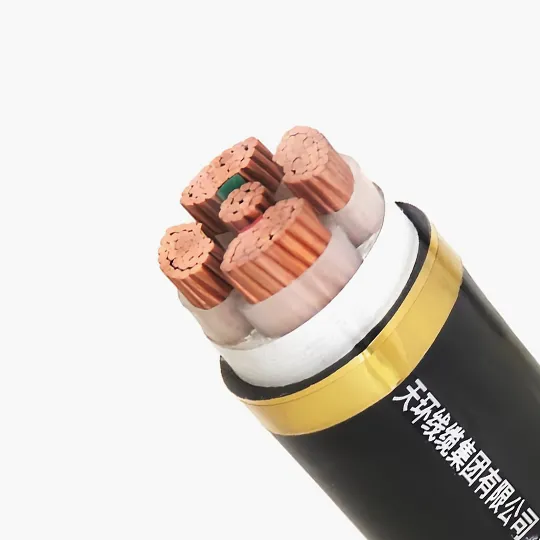
solar mc4 companies
The Rise of Solar MC4 Connector Companies Powering the Future of Renewable Energy
As global interest in renewable energy sources accelerates, the solar industry continues to thrive. A vital component of solar energy systems is the MC4 connector, which plays a crucial role in connecting solar panels to other system components like inverters and batteries. The growing demand for solar energy solutions has led to the proliferation of companies specializing in the production of MC4 connectors. This article explores the significance of these companies, their contributions to the solar industry, and the future of solar energy technology.
Understanding MC4 Connectors
MC4, short for Multi-Contact 4mm, is a type of electrical connector widely used in photovoltaic panels. These connectors ensure secure and weather-resistant connections between solar modules, which is essential for maintaining system efficiency and safety. The design of MC4 connectors features a locking mechanism that prevents accidental disconnection, and they are capable of withstanding extreme weather conditions, making them indispensable for outdoor solar installations.
With the rapid expansion of solar energy deployment across residential, commercial, and utility-scale projects, the demand for high-quality MC4 connectors has surged. This increased demand has sparked innovation and competition among various companies specializing in these components.
Key Players in the MC4 Connector Market
Numerous companies have emerged as significant players in the MC4 connector market. Established manufacturers such as Amphenol, TE Connectivity, and Multi-Contact (part of the Stäubli Group) have dominated the industry, offering a range of connectors that meet international quality standards. These companies invest heavily in research and development to improve connector technology, focusing on factors such as efficiency, durability, and ease of installation.
In addition to established firms, a number of new entrants are also making strides in the MC4 connector market. These companies often prioritize sustainable practices, utilizing eco-friendly materials and manufacturing processes. Their innovative designs aim to further enhance the performance and reliability of solar energy systems.
Driving Innovation in Solar Technology
solar mc4 companies

The competitive landscape of the MC4 connector industry is fostering significant advancements in technology. Companies are exploring new materials, such as advanced polymers and metals, that can improve the performance and longevity of connectors. Innovations in design are also helping to minimize power loss and increase the overall efficiency of solar installations.
Furthermore, the adoption of smart technology is influencing MC4 connector design. Some manufacturers are integrating monitoring systems into connectors, allowing for real-time performance analysis of solar panels. This capability enables users to identify issues more quickly and optimize their energy output, enhancing the overall efficiency of solar systems.
Challenges and Sustainability
While the MC4 connector market is on the rise, it faces several challenges. Competition among manufacturers can lead to a race to the bottom on pricing, potentially compromising quality. Additionally, the supply chain for solar components can be impacted by global events, such as economic downturns or geopolitical tensions, which may affect the availability of raw materials.
Sustainability is also a critical issue. As the world pushes towards greener technologies, MC4 connector companies are increasingly held accountable for their environmental practices. Manufacturers are encouraged to adopt circular economy principles, reducing waste and promoting recycling throughout the product lifecycle.
The Future of Solar MC4 Companies
Looking ahead, the future of solar MC4 connector companies appears bright. As governments and organizations worldwide commit to ambitious renewable energy goals, the demand for solar energy systems—and consequently, MC4 connectors—is likely to grow. This boom exposes companies to significant opportunities for expansion and innovation.
In conclusion, solar MC4 connector companies are playing an essential role in the renewable energy landscape. By ensuring reliable connections within solar energy systems, they contribute significantly to the efficiency and reliability of solar technology. As the demand for clean energy solutions continues to rise, these companies are poised to lead the charge towards a sustainable energy future, driving innovation and embracing environmental responsibility in their operations. The continued evolution of MC4 connectors will be crucial in supporting the global transition to renewable energy sources, ultimately helping to combat climate change and promote a more sustainable world.
-
Reliable LIYCY Cable Solutions for Low and Medium Voltage ApplicationsNewsJul.14,2025
-
Premium Overhead Electrical Wire Solutions for Low and Medium Voltage ApplicationsNewsJul.14,2025
-
Innovative XLPE Electrical Cable Solutions for Modern Low and Medium Voltage NetworksNewsJul.14,2025
-
High-Quality Ethylene Propylene Rubber Cable – Durable EPDM Cable & 1.5 mm 3 Core OptionsNewsJul.14,2025
-
Exploring the Versatility of H1Z2Z2-K 1X4mm2 Cables in Modern ApplicationsNewsJul.14,2025
-
Uses of Construction WiresNewsJul.14,2025
-
Types of Neoprene CableNewsJul.14,2025














